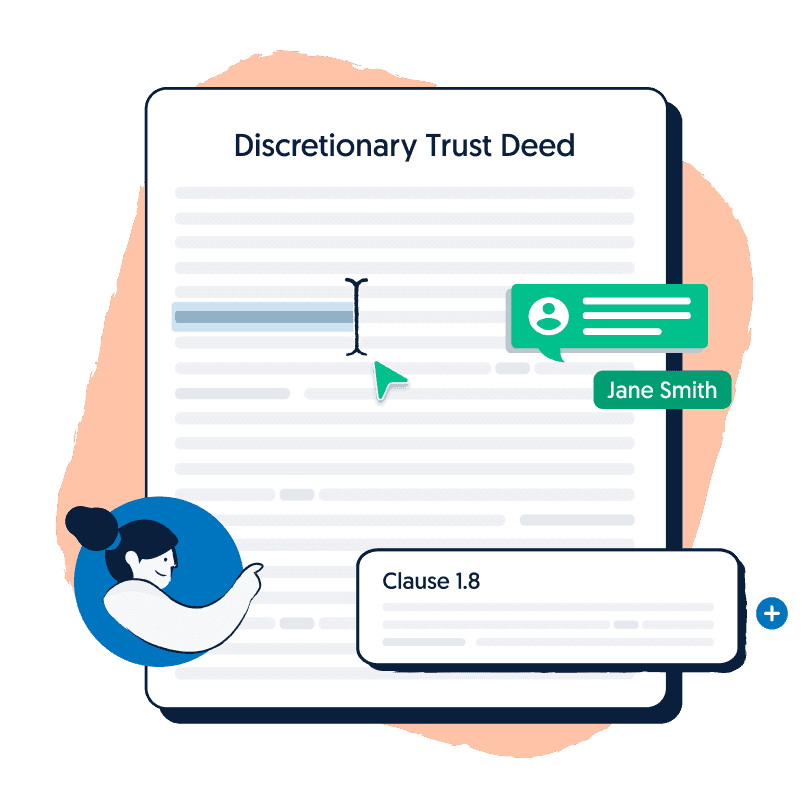Sydney-based lawyer, in LegalVision’s Intellectual Property team, specialising in Trade Marks.
A trust deed (the deed) should specify a date or the occurrence of an event where the trust vests. Essentially, this is the date where the trust ends. Subsequently, what was held on trust will be distributed by the trustee to the beneficiary(s). The deed will usually give effect to trust vesting through a clause specifying a “vesting date” or “termination date”.

Get your Discretionary Trust Deed for free.
You can use this Discretionary Trust Deed to establish a discretionary trust in any state/territory in Australia.
The vesting of a trust
The terms of the trust deed will dictate what happens to a trust when it vests. The deed will commonly specify that assets or trust property are to be vested on the vesting date. However, this may not always be the case. The deed could require the trustee to continue to hold the trust until a consequential event occurs amongst other things.
Consequentially, it’s good practice to refer to your trust deed regularly. In the case of trust vesting, it’s fundamental to know exactly when your trust vests. This is particularly important because after the trusts vests, or terminates, the date cannot be amended. Rather, it can only be amended prior to the vesting date. However the benefit of prior amendment is influenced by a few things, including:
- The extended date cannot be more than 80 years after the trust commenced
- The trust deed must permit in its terms extension or ability to vary the date
- If the trust vesting is an essential feature of the deed, amending the vesting date may lead to complications down the line
Depending on the deed, certain tax implications may effect the trust vesting. This includes capital gains tax (CGT) consequences or income tax obligations. Here you can find more details on this with reference to the ATO’s draft tax ruling. Further, it’s advisable to contact a tax lawyer or accountant to know what tax obligations your trust vesting may be subject to.
What you need to do
As a trustee, you may have the power to amend the provisions that deal with trust vesting. But this depends on the clarity of the terms in the deed. Knowing what your deed is saying requires careful consideration of the words used and the terms. So, you should seek a professionals advice before you make any determinations.
If the deed does not provide you with any specific powers to amend, extend or bring forward the date, you will need to approach the supreme court in your state or territory to make any changes to the vesting date. You cannot just continue to administer the trust and as aforementioned, you cannot change the vesting date once the date has lapsed.
Final thoughts
It’s important to review your trust deed regularly to know exactly when the vesting date is, and make any decisions to amend or extend well before the date. Further, sometimes deciphering trust deeds can be complex. So, it’s strongly recommended that you seek the advice of a trust lawyer.
Don't know where to start?
Contact us on 1800 529 728 to learn more about customising legal documents, obtaining a fixed-fee quote from our network of 600+ expert lawyers or to get answers to your legal questions.






